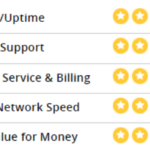Security Breach: How Russian Hackers Can Affect Your Website
Security has long been a favorite topic for discussion since the Internet became what it is today. For what has been a very long time, we’ve heard news and rumors about security breaches and hacked accounts. The fact that it seems to be everywhere also makes us cringe and fear the safety of the private files and sensitive information we use on the Internet on a daily basis. Stories of these attacks often lead us to the question, “Is the Internet really safe?”
reported to have attacked using SQL injection. They set the record for the most stolen credentials- username and password combinations including email addresses- in the history of the world wide web.
 The CyberVor hackers were reported to have successfully hacked over 400,000 websites. Although there are billions of active websites today, this hacking incident should still be given attention, and can still, at a very slim chance, put you or your website at risk.
The CyberVor hackers were reported to have successfully hacked over 400,000 websites. Although there are billions of active websites today, this hacking incident should still be given attention, and can still, at a very slim chance, put you or your website at risk.
In August of 2014, news of a group of Russian hackers penetrating website security and exposing over 1 billion passwords went viral. The security firm discovering the hack gave these hackers the nickname, “CyberVor.” They were.
SQL Injection

The Russian hackers enacted a premeditated theft with the use of a botnet, which can essentially be defined as a virus that targets and infects not just one, but a network of computers. This is more commonly known as an SQL (pronounced as Sequel) injection. What is an SQL Injection? How does it work? Let’s find out.
The botnet, or simply the bot, is the perpetrator of the attack. It initially looks for blank fields in which we type our sensitive information- passwords, credit card details, usernames, etc. Even search boxes on Google or any other site or comment boxes were not safe- botnet was monitoring it all.

Think of the botnet as an army of computers that forwards data to other computers also connected to the Internet. These botnets change the way the application input works so that any information put in goes directly to their servers. CyberVor’s botnets made sure any website they were logging on to was vulnerable to SQL injection.
Although we may have not heard of them before, SQL injections are actually not new. This hack has been around for about a decade, and is fairly easy to prevent from permeating our levels of security. SQL injections simply use the available fields in any website that takes your data to gain access the site’s database. The term injection is used in reference to the process of “injecting” the SQL code as user data in any input field on a website.
What It Means for Your Website

If you have a website that requires putting in any type of information, like usernames and passwords, or credit card information, you might be greatly affected by the scare that was brought about by the attack. Clients may have become more cautious and may hesitate in giving you any of these pieces of information. Needless to say, if you are running a sales or membership website, your sales will decrease dramatically, or you will get less and less subscribers/members.
Since security is everyone’s primary concern (as it should be,) your website’s security will always be at risk, and eventually you will have to take precautionary measures to ensure that your clients’ data is always protected. There is no known information yet as to how these hackers are planning to make use of the passwords, card data, private files, and other pieces of information they have managed to steal, save for collecting fees in exchange for email addresses so that social media sites can send out spam emails. This may sound like a small price to pay for the incident, but it still leaves us vulnerable to a future attack that, who knows, may be worse.
What We Need to Do

We should never pass on a chance to ensure safety and security. The Internet is vulnerable to attacks simply because thieves and hackers have an extensive knowledge of technology. As it is, hackers will always be around to try and crack anything they can make money out of. It is now up to us to prevent them from getting anywhere near us. To avoid being a victim of SQL injections and botnets, and to protect not just your website but also, more importantly, your visitors, here are some tips you can keep in mind:
- If your website is SQL-based, as much as possible, avoid using dynamic SQL.
- Only keep functionalities that are necessary for your website to function.
- Turn off the “magic_quotes_variable.”
- As soon as patches become available, install them immediately.
- Authenticate users by using more specific rules to make it more secure.
Save Hosting Company
HostiServer.com ensures the safety and security of your files, including that of your visitors and clients. HostiServer is 100% safe, aside from having extremely fast servers and reliable Virtual Private Servers (VPS) or Dedicated Servers located both in the US and in Netherlands.

HostiServer aims to provide their clients with everything they need- from security to dependable customer service- everything will be provided. That’s why all of their clients are super satisfied with them.

Here’s a satisfied client, and what she has to say about her experience with the team.

Conclusion
Because security is everyone’s utmost concern, in times of vulnerability we always have to be alert. Making sure that we take that extra step into ensuring security and safety will make us feel more secure, while at the same time attracting more and more customers, visitors, or viewers to our site. HostiServer will be your best friend in situations like this. Contact us for more information.



